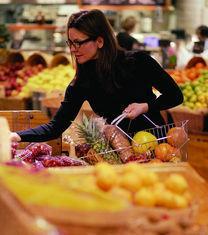
A new report suggests that consumers want to buy sustainably, but are restricted by price, patchy availability and contradictory messages, according to the research by PricewaterhouseCoopers (PwC).
The consultancy’s study, which incorporates the views of retail and consumer goods business leaders, finds that to capitalise on sustainability, retailers and their suppliers need to bring more sustainable products to the shelves at a lower or zero premium to standard items, or to justify the premiums that do exist. Consumers have reached the point where they increasingly expect sustainable attributes to be an inherent part of the products and services they buy.
The report states: “Today’s consumers know even more, and care even more about what they buy, how it is made, what it is made from, how far it travels and how it is packaged.” The issue has become more acute as consumers are feeling economic pressure in food, fuel and utility prices, and seeing increased volatility in global and local weather patterns. Awareness has also been influenced by the explosion of media coverage, with the number of articles on sustainability appearing in the mainstream national UK press increasing 10-fold over the past decade.
And consumer buying decisions are reflecting their awareness, with PwC’s survey of 4,000 consumers showing Fairtrade food penetration has grown from 20 per cent of shoppers three years ago to 50 per cent now, and organic food buying has increased from 22 per cent to 43 per cent.
Mark Hudson, UK retail and consumer leader at PwC, said: “Sustainability is now a business imperative for retailers and suppliers. This is about securing business for the future. Unlocking the demand - and the willingness to pay a premium - will require innovation, improved communication, bold strategic moves and greater clarity. The best- run companies will become the most sustainable and, ultimately, the most successful. Those moving first and fastest are creating resilient models for the long term.”
PwC’s study found price is the number-one inhibitor preventing consumers from buying sustainable products in greater volumes, but it also indicated that consumers are hampered by unclear messages.
More than six in 10 questioned in the PwC survey think reducing the amount of packaging on products is the most important action retailers and their suppliers could take to help the environment.



